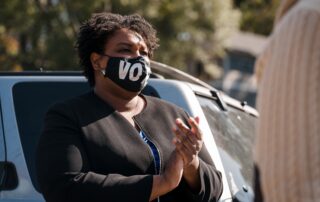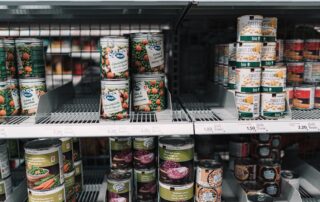COVID-19 and Recovery Response
As the pandemic enters its third year and the nation turns to recovery, the Institute for Women’s Policy Research is committed to amplifying and addressing the challenges women face. IWPR’s new research provides insights and recommendations for policymakers to help meet the urgent and long-term needs of women, their families, and their communities.
Statement from IWPR on Passing the Second Stimulus Package
FOR IMMEDIATE RELEASE December 21, 2020 Contact: Keri A. Potts | 860-839-3438 | potts@iwpr.org IWPR Statement—We applaud the passage of the $900 billion federal stimulus package meant to ease the economic burden and hardship faced by working women and their families. Although a step in the right direction, there is still much work to be done to ensure that families have the economic supports to fully recover and women are able to re-enter the workforce. The negotiated package cuts weekly enhanced benefits and one-time [...]
COVID-19’s Impact on Women and Their Families in Georgia
By: Stacey Abrams and Alí Bustamante. Photo by Kevin Lowery (@kevloweryphoto). This guest blog is part of a week-long series for IWPR’s signature Status of Women in the States initiative. The work featured in this series highlights the various ways the pandemic and related economic crisis are impacting women and their families at the state level. This project builds on IWPR’s recent economic recovery report that details the extent to which women, and particularly women of color, have shouldered the greatest burden of the [...]
Distance Learning Demands Put Low-Income, Minority Working Mothers in Double Bind
This article is part of a week-long series for IWPR’s signature Status of Women in the States initiative. The work featured in this series highlights the various ways the pandemic and related economic crisis are impacting women and their families at the state level. This project builds on IWPR’s recent economic recovery report that details the extent to which women, and particularly women of color, have shouldered the greatest burden of the economic crisis, and also proposes a slate of bold policies to ensure [...]
Families report food insecurity as pandemic continues and benefits set to end
This article is part of a week-long series for IWPR’s signature Status of Women in the States initiative. The work featured in this series highlights the various ways the pandemic and related economic crisis are impacting women and their families at the state level. This project builds on IWPR’s recent economic recovery report that details the extent to which women, and particularly women of color, have shouldered the greatest burden of the economic crisis, and also proposes a slate of bold policies to ensure [...]
States and localities need federal funding to address housing insecurity among women and families
This article is part of a week-long series for IWPR’s Status of Women in the States initiative. The work featured in this series highlights the various ways the pandemic and related economic crisis are impacting women and their families at the state-level. This project builds on IWPR’s recent economic recovery report that details the extent to which women, and particularly women of color, have shouldered the greatest burden of the economic crisis, and also proposes a slate of bold [...]
The Pandemic Will Send More Women to the C-Suite
By Caroline Fairchild The immediate legacy of this pandemic is the outsized negative impact it’s had on working women. Yet when we look at the top of the corporate ladder, there are signs of hope. COVID-19 has been catastrophic for women — particularly minority women, low-income women and single mothers. Job losses have mounted in sectors that employ a large share of women, while school closures have forced many working mothers to drop out of the workforce altogether. In the U.S. [...]







